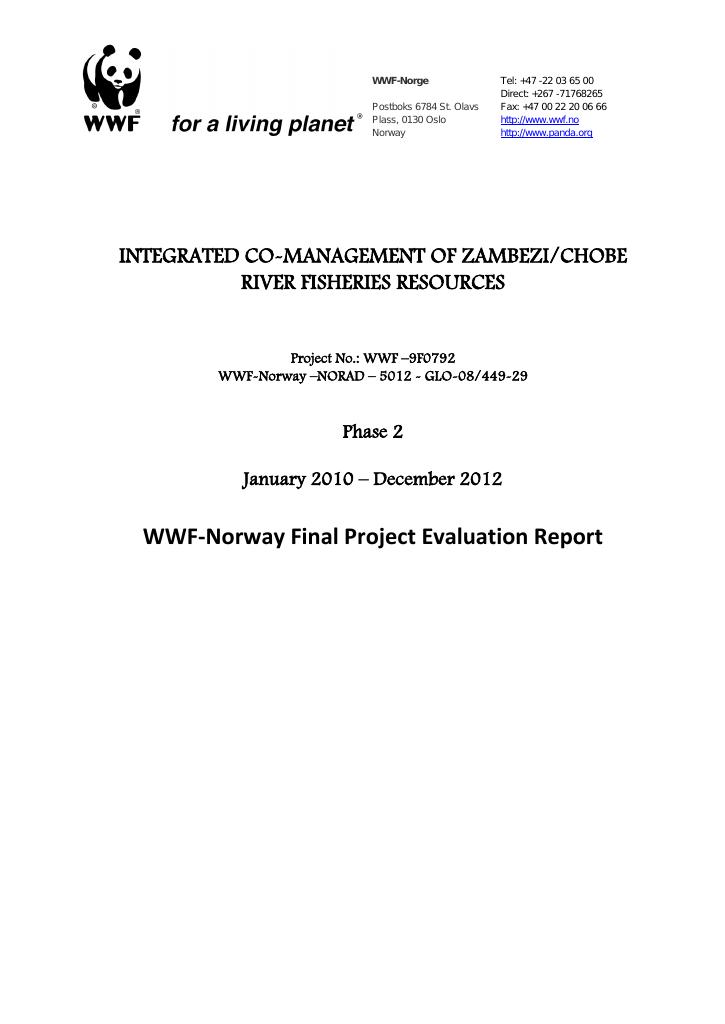Evaluering
Integrated Co-management of Zambezi/Chobe River Fisheries Resources Final Project Evaluation (2nd Phase)
This project was designed to address unsustainable exploitation of the fisheries resources shared between Zambia, Botswana and Namibia. It was implemented between January 2010 and December 2012, covering the Chobe and Zambezi Rivers and the area between them which includes more than 300,000 hectares of floodplains in the eastern Caprivi. This project was building on the activities of the 1st Phase of this project, which took place between 2007-2009. This evaluation was undertaken in accordance with the WWF Network Standards which stipulates that all projects require an evaluation to assess whether it achieved what it set out to do. This is a crucial element of adaptive management and part of our programme cycle. The purpose of this project was to establish a fully integrated and sustainable management system for livelihood and sport fisheries, that provided benefits to all stakeholders reliant on this resource by 2012. This was to be achieved through: cross-border collaboration, harmonisation of essential elements of the fisheries legislation, establishment of community Fish Protection Areas and community management institutions, collaboration with tourist angling lodges and capacity building in research and monitoring of fish resources.
